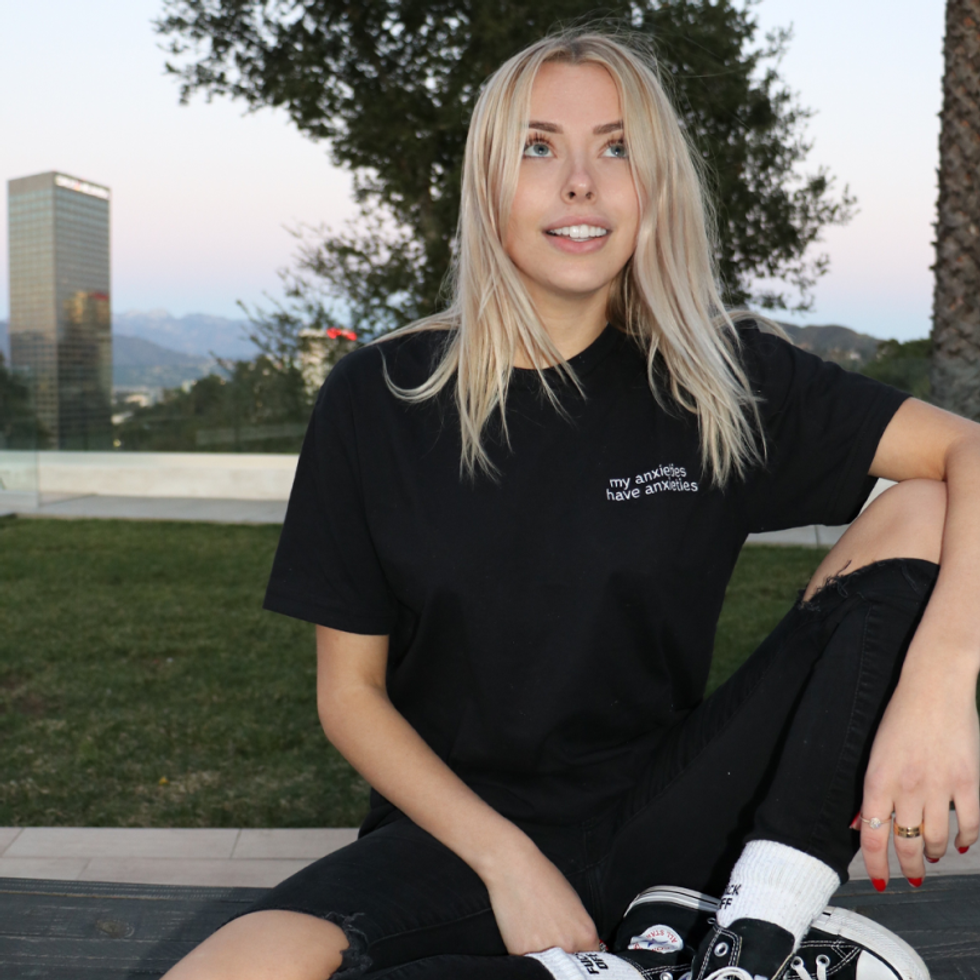Mental illness has always existed, and sadly, it has taken the world a long time to become more open to the idea of that. Over the past few years, though, some people who suffer from mental illnesses have begun opening up about their experiences and creating healthy, eye-opening discussions online.
With this more open discussion, though, there come people who begin to romanticize the idea of having a mental illness; those who see that depression or anxiety is suddenly being discussed, so they want to jump on the 'bandwagon'. This is happening, in a major way, across the internet, on platforms like twitter and youtube.
That being said, YouTube is actually the catalyst that reignited the fire of this topic, when YouTuber Corinna Kopf released anxiety-themed merch.
Corinna, known mostly through her association with David Dobrik and the Vlog Squad, released merchandise that read "my anxieties have anxiety" as well as hoodies with the definition of anxiety printed on the back.

While it may seem, at first, like there is nothing wrong with taking a mental illness you may have and turning it into something positive, or proudly stating that you suffer from it, making merch of it begins to teeter the line of romanticizing it. Others will see that she is making a profit off of her anxiety, and begin to use theirs as a way to do the same. Even, in some cases, people who don't have anxiety may buy the merch and start claiming that they do have it, just because an idol of theirs has it.
And even though Corinna did say that she was donating 15% of the proceeds to the ADAA (Anxiety and Depression Association of America), her merch still has the potential to do more harm than good.
Luckily, after backlash from the internet, Corinna did pull the anxiety merch from her store and issued an apology on Twitter.
She is not the first person on youtube do this, though. Other YouTubers like Grace Helbig, have released clothing that involves mental illness.
How do you tell, though, if someone is romanticizing it or not? Think about the idea behind the content. Are they praising someone for being broken and struggling; or are they uplifting them for how hard they're fighting every day? When they sell shirts with phrases that make exclamations of having mental illnesses, do the profits go towards charities or nonprofits that help with those who suffer from it; or do they keep the profits for themselves?
While I love that our society is beginning to open up more on the topic of mental illnesses, I do think that it's important to keep an eye out for situations like this, where it could sway our topics back into that of unhealthy conversations.



















